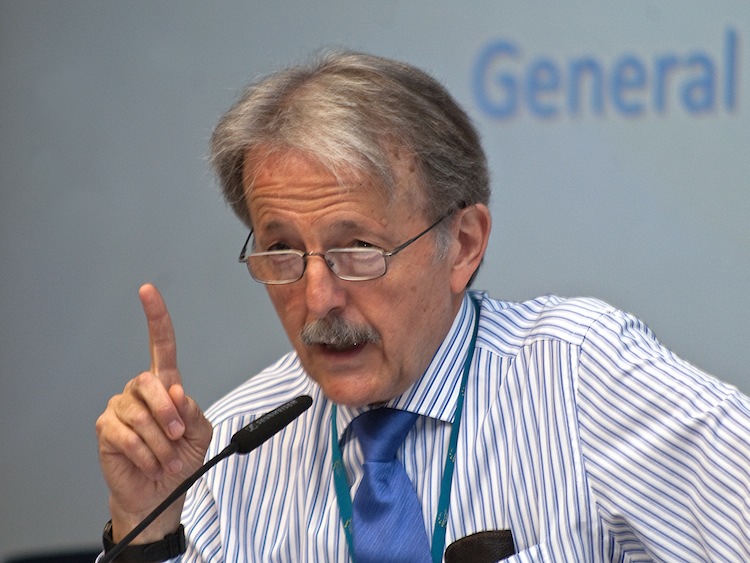EU Commission Announces 'Mainstreaming Accessibility' Across All European Tourism Policies
Share on social media
Brussels, 6 June 2014. At the EU Tourism Stakeholders' Conference, "Mind the Accessibility Gap", Mr Pedro Ortún, Director for Service Industries, Directorate General Enterprise and Industry declared that accessibility is to be a permanent element of the EU's future tourism policies.
 Pedro Ortún. Photo by Ben Gale
Pedro Ortún. Photo by Ben Gale
Brussels, 6 June 2014. At the EU Tourism Stakeholders' Conference, "Mind the Accessibility Gap", Mr Pedro Ortún, Director for Service Industries, Directorate General Enterprise and Industry declared that accessibility is to be a permanent element of the EU's future tourism policies.
Speaking to an audience of over 200 tourism professionals and representatives of NGOs, Mr. Ortún laid out the Commission's vision for tourism policy development and actions in the coming years.
He pointed to the Commission's continued focus on quality, sustainability and reaching new tourism markets, including seniors, in particular. "The 'Key Enabling Themes' (KETS) for the future of European Tourism include accessibility, as a permanent element, tourism as a vehicle for creating jobs, for better quality, for new services, for innovation, sustainability, for responsibility."
Mr. Ortún welcomed the results of the 3 EU-wide studies on Accessible Tourism demand, supply and skills requirements, which were presented at the conference, pointing out the important new evidence that shows the very large direct and indirect economic value of investments in accessibility.
As the fifth largest sector in the European economy, tourism should be seen as a key driver of growth and jobs - and therefore deserving of wide recognition and support from Member States and the European Union as a whole.
"Mainstreaming accessibility means that access for all citizens has to be integrated in all our tourism activities at every level", Mr. Ortún concluded.
Other presentations at the conference included those of Greek and Italian Presidency representatives, the three Study Teams, Case Study researchers and representatives, as well as stakeholders from the tourism industry and NGOs.
The conference presentations can be viewed and downloaded from the ENAT Resources page.
